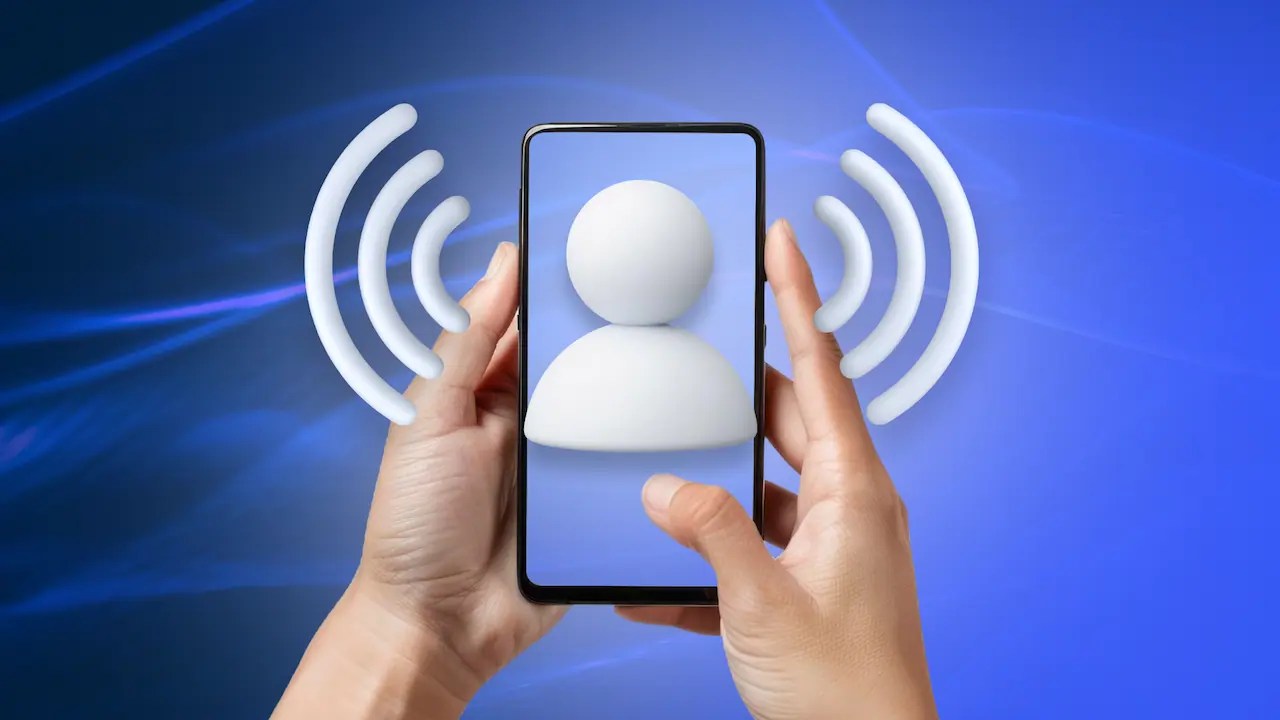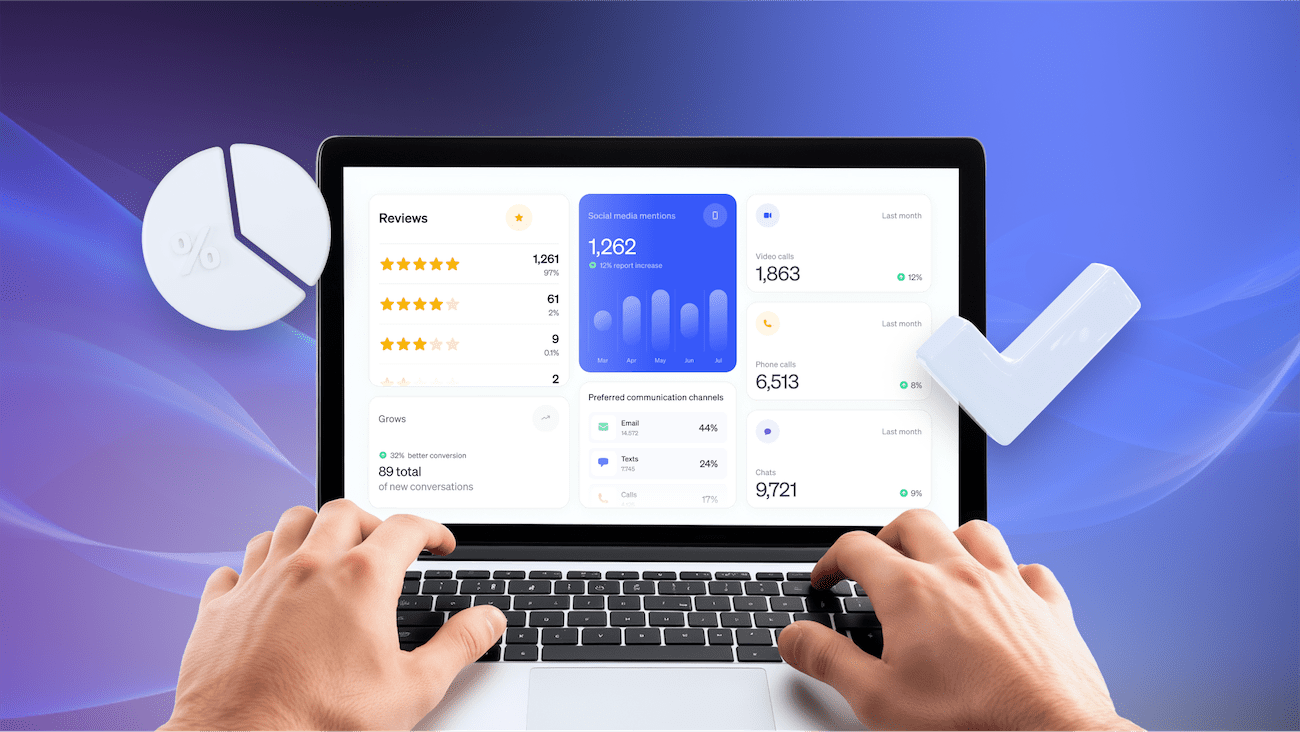If you’re in charge of a contact center, you’ll want to make sure your agents have the training, knowledge, and support they need to provide exceptional service.
You need to ensure consistent agent performance, provide timely feedback, and reduce team burnout — all of which can be difficult without the right tools.
Balancing productivity, quality assurance, and employee development can be challenging, especially in a fast-paced environment like a contact center. However, coaching software can help. Not only can good coaching software provide important feedback and guidance for agents, but it can also help managers better understand their teams.
So, what are the benefits of contact center coaching software, and where might it fall short? Let’s explore.
What Is Contact Center Coaching Software?
First and foremost, we need to understand what contact center coaching software is and how it works.
Contact center coaching software is designed to help managers and supervisors monitor, evaluate, and improve agent performance. It manages this through targeted coaching, examining individual agents to determine their strengths and weaknesses and providing data and suggestions for improvement.
The software gathers data from multiple sources, including recorded calls, real-time interactions, and established key performance indicators (KPIs). It then uses that data to provide personalized coaching, feedback, and action plans for each agent.
What Are the Key Functions of Contact Center Coaching Software?
Contact center coaching software consists of multiple features and tools designed to analyze contact center agent performances and provide actionable suggestions. These include:
Performance tracking
Coaching software can monitor KPIs such as call handle time, customer satisfaction, and first-call resolution. These KPIs are then analyzed to evaluate agent performance and determine each agent’s strengths and areas for growth.

Call recordings and analytics
Coaching software also includes call recording and analytics to store audio recordings of each call and add helpful metadata to build insights. Managers can review recorded calls and provide feedback on them, while the analytics include insights and information pertinent to the overall success of the call and the agent’s performance.
Automated insights
Contact center coaching solutions typically include AI-powered tools that provide automated, actionable insights. These tend to focus on areas where agents need improvement so they can receive personalized coaching and training to work on weak points.

Agent scorecards
Coaching solutions can also generate scorecards for each agent, providing data and scores for performance elements, including customer satisfaction, script adherence, and call times. This provides visual reports for individual agents that highlight their strengths and weaknesses.

Real-time feedback
While receiving feedback after a call can help improve future performances, getting real-time feedback can also help agents resolve calls in the moment. Coaching software can include real-time feedback tools, which enable managers to offer immediate suggestions during calls.
This can help agents reinforce best practices, correct issues during the call, or find information they were struggling with, turning potentially negative calls into a positive customer experience.
Training tools
All the data and insights in the world won’t do contact center agents or managers any good if they don’t have the right training to go with it. This is why many coaching software solutions include built-in training modules or integrate with existing learning management systems (LMS).
Managers and supervisors can use the information from their coaching software alongside their training modules or LMS to provide ongoing skill development for their agents. This ensures that the agents receive the training they need to succeed, and their coaching software is fully utilized.
Goal setting and tracking
Setting and tracking goals is a helpful way to ensure agents are receiving the training they need and that the lessons are sticking. Coaching solutions can set specific performance goals for agents and track their progress over time, allowing contact center managers to see their agents’ growth and improvements.

Agent self-assessment
Sometimes we’re our own harshest critics. This can be advantageous when your agents use self-assessment tools to review their own performances and monitor their calls at their own pace. Self-assessment tools can keep agents mindful of their successes and setbacks and help with setting goals and tracking growth.
Benefits of Contact Center Coaching Tools
Now that we understand what features contact center coaching tools offer, it’s time to look a little closer at the various benefits they provide. How can your call center benefit from coaching?
Improved agent performance
One of the first and most important benefits is the overall improvement in agent performance. When agents receive consistent, targeted coaching, they’ll improve their communication skills, first-call resolution rates, and customer satisfaction. While this is an obvious and direct result of coaching, its value cannot be overstated.

Personalized feedback
Not only can coaching software help call center agents with their training, but it also provides personalized feedback that’s tailored to each agent. Every agent receives specific guidance and training based on their performance, addressing their strengths and areas for improvement. This helps them home in on their areas for growth.
Reduced agent turnover
When agents are consistently receiving feedback and support to help them grow, their satisfaction tends to improve significantly. This reduces burnout and increases retention, helping to ensure that your agents will stick around.

Improved productivity
Coaching software can help agents become more efficient. Identifying bottlenecks and performance issues allows contact center supervisors and agents to address problems and find areas for growth, making calls and agents more efficient and productive.
Scalable coaching
Coaching is important for agent growth, but individual managers can only help train so many call center agents at once. Coaching software solves this issue by automating many aspects of coaching and providing agents with feedback directly, thus allowing managers to scale their efforts and coach larger teams more effectively.
Data-driven decision-making
Data is king, as the saying goes, and having the right data to guide your coaching can have a significant positive impact on your contact center.
Coaching software uses data from actual calls to provide objective, actionable feedback, free from guesswork and personal bias. This provides a clear heading for training and management, helping supervisors make better, informed decisions.
Trackable progress
When agents receive coaching and guidance, the results are clear. Coaching software includes metrics and KPIs that let managers track agent performance so they can see the results of the agents’ training and monitor their growth over time.

Limitations of Coaching Software
With all that said, coaching software isn’t all-powerful. There are still several limitations that organizations will want to be aware of — both in terms of the technology and how contact centers use it. These are a few potential issues to watch out for:
Over-reliance on technology
While coaching software is useful, it can’t replicate or replace the human element of coaching. Many interactions require a human touch, so managers must still speak to and work with their agents throughout the training and coaching process.
Those who step back and try to let the software handle everything won’t see the same benefits as those who work with their agents throughout the coaching process.
Initial setup and integration
Contact center coaching software is not a plug-and-play solution. Setting it up and integrating it with other systems can be a time-consuming process — potentially even costly, depending on the technology.
You’ll want to integrate your coaching software with your customer relationship management (CRM) solutions, learning management system (LMS), and more, so understanding what tools must connect and work together is vital.

Data overload
The good news is that contact center coaching software can gather vast quantities of data on agent performance, customer satisfaction, and the overall health of the contact center.
The bad news is that managers have a lot of information to work with.
Too much data can be overwhelming, especially if the software isn’t optimized to highlight key performance areas. Managers can quickly be overwhelmed by all the metrics and stats to monitor, which means the contact centers aren’t benefiting from the insights.
Agent resistance
While coaching and guidance are important, agents also don’t want to feel like they’re being constantly monitored and micromanaged. Coaching software needs to be carefully implemented, and agents must understand exactly how it’s designed to help and what it monitors.
Otherwise, they may feel like they’re constantly being watched and judged by an unfeeling digital supervisor, which is detrimental to employee morale and satisfaction.
Best Practices for Contact Center Coaching Software
If you want to gain all the benefits of contact center coaching software, you need to understand and adhere to the best practices. Following these steps will help your contact centers make the most of the investment:
Set clear objectives
First, you need to establish clear and specific goals for both agents and managers. Are you aiming to improve first-call resolution? Is your objective to reduce the average call handle time?
Whatever you want to improve, your entire team must be aware and on board.
Coach on what agents can influence
Even the greatest agents in the world will still struggle with unreasonable customers or technological issues outside of their control.
It’s important to focus on the metrics that align with what agents can control and are directly responsible for — those are the performance indicators you can and should address with coaching.
Encourage self-assessment
Agents should be empowered to take charge of their self-improvement rather than being told what they need to improve.
Allowing agents to review their performance data and set personal goals gives them more ownership of their development, making them more invested in their own training.
Recognize and reward progress
Growth without recognition often feels empty. Agents should be acknowledged and rewarded for their improvements, as this boosts morale and motivates them to continue developing their skills. Using gamification to incentivize your employees can be a fun way to reward their hard work.

Boost Your Contact Center’s Efficiency with Nextiva
Call centers often struggle with agent burnout and a lack of motivation, which can be exceedingly detrimental. However, with the right coaching and tools, you can improve your call center operations, agent satisfaction, and overall efficiency.
With Nextiva, you can access all the tools and insights call center directors and managers need.
These include:
- Robust analytics and reporting
- Call recordings and automatic transcripts
- CRM integrations
- Workforce engagement and management
- Sentiment analysis
In short, Nextiva has everything contact centers need to ensure agents receive the coaching, tools, and resources they require to delight their customers on every call. This keeps agents satisfied, customers happy, and efficiency high.
Wow customers every day. Learn more about Nextiva. 👇
Call Center Solutions
Take more customer calls with fewer agents. Run your call center in the cloud today.

















 Productivity
Productivity 










